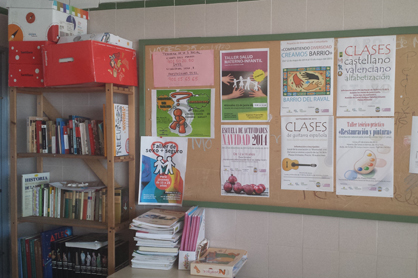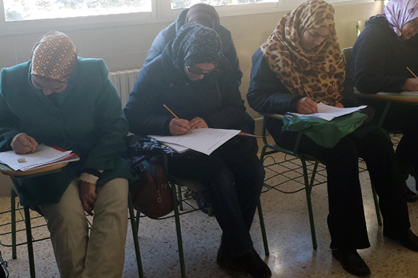A new future for a slum in Valencia
 A Project manager, a social worker and two volunteers are bringing hope to a marginal neighbourhood in a village in Valencia. It is the project “Sharing diversities, generating bonds”, within the EEA Grants Active Citizenship Programme.
A Project manager, a social worker and two volunteers are bringing hope to a marginal neighbourhood in a village in Valencia. It is the project “Sharing diversities, generating bonds”, within the EEA Grants Active Citizenship Programme.
4.03.2015
Raval neighbourhood in Algemesí (Valencia) is a run-down area where 2,000 people, most of them Moroccan immigrants and Roma, lives under very poor condition, without medical or social assistance, just a school. The railway tracks and an industrial site set them apart from the village. Drugs and marginality shape their future.
It is in this neighbourhood where the NGOs Nuevo Futuro (New Future) and Nuevo Amanecer Gitano (New Roma Dawn) have launched a project to foster active citizenship. “The objective is to build a dynamic neighbourhood able to be the main player in its own development, for that reason we have opened a Citizen Participation Centre where the neighbours can come together and work, breaking down existing barriers between the different communities”, explains Gloria Hernández, the project promoter.
But indeed the result goes far beyond. The project manager, along with a social worker and two volunteers provides literacy classes for adults, school support for children, job training for young people, music classes… Besides, they have created a library, they are preparing a ‘services guide’ so the residents have information about the services available to them and they have a computer with an internet connection to help them in their daily lives. Some weekends the project workers organize cultural outings to show the neighbours what other areas are doing to enhance their development.
 Most activities are addressed to women and young people because of their high level of vulnerability. “The problem of this area is that no one has bet on it and there is a lack of continuity in the assistance, for that reason a citizen engagement is needed as a dynamic force for change”, points out Emi Tormo, social worker. “The experience is being extremely positive because the project has been welcomed very well by the neighbours, especially the women”, explains Gloria Hernández. A group of Moroccan women underlines this. They attend twice a week Spanish classes “in order to help our children with their homework”. Their greatest concern is to know what will happen in May when the project supported by the EEA Grants ends because for them, one thing is clear: they want to keep learning.
Most activities are addressed to women and young people because of their high level of vulnerability. “The problem of this area is that no one has bet on it and there is a lack of continuity in the assistance, for that reason a citizen engagement is needed as a dynamic force for change”, points out Emi Tormo, social worker. “The experience is being extremely positive because the project has been welcomed very well by the neighbours, especially the women”, explains Gloria Hernández. A group of Moroccan women underlines this. They attend twice a week Spanish classes “in order to help our children with their homework”. Their greatest concern is to know what will happen in May when the project supported by the EEA Grants ends because for them, one thing is clear: they want to keep learning.
This project is co-financed by the European Economic Area Financial Mechanism (EEA Grants) within the Active Citizenship Programme, operated by the NGO Platform of Social Action, funded with 4.6 million euros which aims to strengthen the role of the NGO and their contribution to social justice and sustainable development.